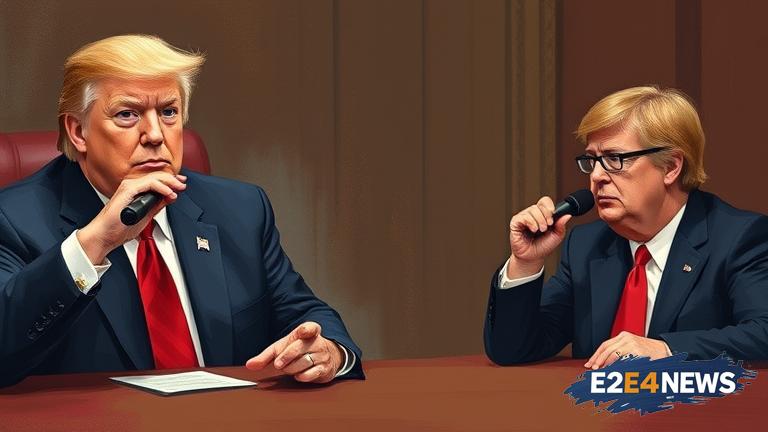In a move that has sent shockwaves across the globe, US President Donald Trump has signed a bill that effectively cancels $9 billion in foreign aid and public broadcasting funding. The bill, which was passed by Congress, aims to rescind funding that was previously allocated for various foreign aid programs and public broadcasting initiatives. The decision has been met with widespread criticism, with many arguing that it will have severe consequences for global development and diplomacy. The canceled funding was intended to support a range of programs, including those focused on global health, education, and economic development. The move is seen as a significant shift in US foreign policy, with many questioning the motivations behind the decision. The cancellation of funding for public broadcasting has also raised concerns about the impact on independent media and the ability of journalists to hold those in power accountable. The bill has been hailed as a victory by some of Trump’s supporters, who argue that it will help to reduce the US budget deficit and prioritize domestic spending. However, others have expressed outrage and disappointment, arguing that the move will undermine US credibility and influence on the global stage. The decision is also likely to have significant implications for US relationships with other countries, particularly those that rely heavily on US foreign aid. The US has long been a major player in global development and diplomacy, and the cancellation of funding is likely to be seen as a significant retreat from this role. The move has also sparked concerns about the potential consequences for global stability and security, with many arguing that the cancellation of funding will create power vacuums and exacerbate existing conflicts. Despite the controversy, the Trump administration has defended the decision, arguing that it is necessary to prioritize US interests and reduce waste and inefficiency in government spending. The cancellation of funding is also likely to have significant implications for the US media landscape, with many public broadcasting outlets relying heavily on federal funding to operate. The move has been condemned by many in the media industry, who argue that it will undermine the ability of journalists to hold those in power accountable and provide independent and unbiased reporting. As the news of the cancellation of funding continues to sink in, many are left wondering about the potential long-term consequences of this decision and how it will impact the US and the world at large. The decision is a significant development in US politics and is likely to have far-reaching implications for global development, diplomacy, and media. The US has long been a leader in global development and diplomacy, and the cancellation of funding is likely to be seen as a significant shift in this role. The move has sparked widespread debate and controversy, with many arguing that it will have severe consequences for global stability and security.
